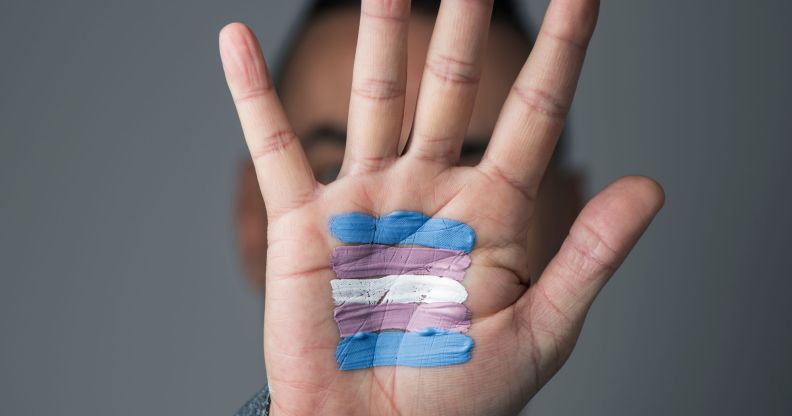Lifestyle
UK Trans Man Fights Gender Recognition Denial Over Parenthood Desire

A trans man in the UK is challenging a ruling by the Gender Recognition Panel that denied his request for legal gender recognition due to his desire to conceive children. The panel argued that his intention to have children indicated he had not been living as a man, a stance that has raised significant concerns about human rights implications.
Under the Gender Recognition Act, individuals in the UK can apply for a Gender Recognition Certificate (GRC) to have their gender legally recognized. This process requires applicants to have a diagnosis of gender dysphoria, be over 18 years old, and demonstrate that they have lived as their affirmed gender for at least two years. Furthermore, they must intend to continue living in that gender for the rest of their lives.
The panel’s ruling is particularly contentious because it suggests that the ability to bear children is incompatible with a male identity. This interpretation has been met with criticism from legal advocates, including representatives from the Good Law Project. In July 2023, lawyers from this organization presented their case in the High Court, arguing that the panel’s decision infringes upon the applicant’s human rights.
According to the Good Law Project, the ruling contradicts principles set forth by the European Court of Human Rights, which has maintained that trans individuals should not be required to cease attempts at conception or undergo sterilization to gain recognition of their gender identity. Jess O’Thomson, a spokesperson for the organization, emphasized the significance of challenging such decisions, stating, “Trans people are being ripped up. Requiring that a minority does not have children reeks of eugenics.”
The debate surrounding gender recognition remains complex. Currently, sterilization is a requirement for legally changing gender in at least 25 countries, while it is illegal in 106 others. In the UK, the possibility of legally changing gender was established in 2005 following a ruling by the European Court of Human Rights, which found that the UK was violating international human rights laws by not recognizing trans individuals.
The Good Law Project is determined to contest what it describes as “archaic rollbacks” of trans rights. The organization plans to publish the High Court’s decision regarding this case as soon as it becomes available, indicating their commitment to advocating for the rights of the trans community in the UK.
As the legal landscape continues to evolve, the outcome of this case may have far-reaching implications for gender recognition and reproductive rights for trans individuals in the UK and beyond.
-

 Entertainment3 months ago
Entertainment3 months agoAnn Ming Reflects on ITV’s ‘I Fought the Law’ Drama
-

 Entertainment4 months ago
Entertainment4 months agoKate Garraway Sells £2 Million Home Amid Financial Struggles
-

 Health3 months ago
Health3 months agoKatie Price Faces New Health Concerns After Cancer Symptoms Resurface
-

 Entertainment3 months ago
Entertainment3 months agoCoronation Street’s Carl Webster Faces Trouble with New Affairs
-

 Entertainment3 months ago
Entertainment3 months agoWhere is Tinder Swindler Simon Leviev? Latest Updates Revealed
-

 Entertainment4 months ago
Entertainment4 months agoMarkiplier Addresses AI Controversy During Livestream Response
-

 Science1 month ago
Science1 month agoBrian Cox Addresses Claims of Alien Probe in 3I/ATLAS Discovery
-

 Entertainment4 months ago
Entertainment4 months agoKim Cattrall Posts Cryptic Message After HBO’s Sequel Cancellation
-

 Entertainment2 months ago
Entertainment2 months agoOlivia Attwood Opens Up About Fallout with Former Best Friend
-

 Entertainment3 months ago
Entertainment3 months agoMasterChef Faces Turmoil as Tom Kerridge Withdraws from Hosting Role
-

 Entertainment4 months ago
Entertainment4 months agoSpeculation Surrounds Home and Away as Cast Departures Mount
-

 World2 months ago
World2 months agoCole Palmer’s Mysterious Message to Kobbie Mainoo Sparks Speculation




















